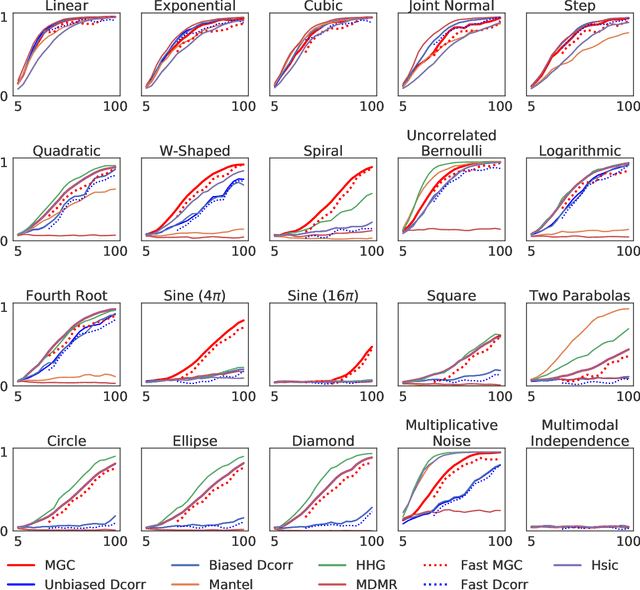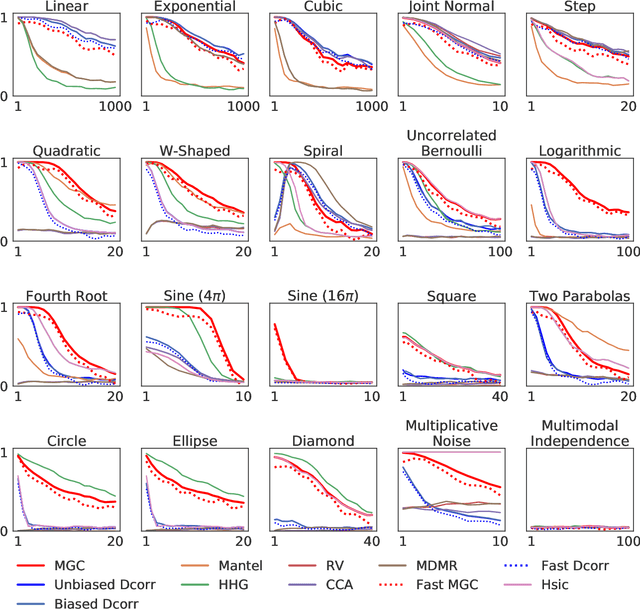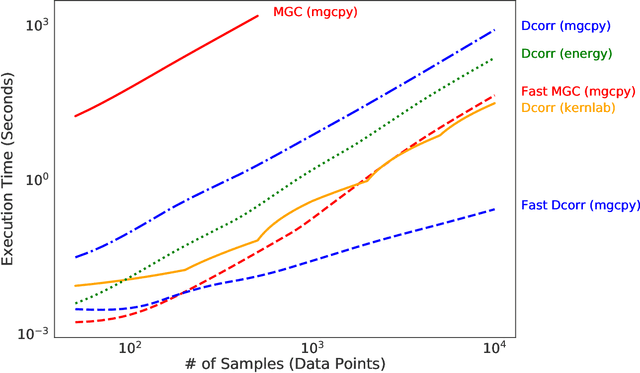Eric W. Bridgeford
Learning sources of variability from high-dimensional observational studies
Jul 26, 2023Abstract:Causal inference studies whether the presence of a variable influences an observed outcome. As measured by quantities such as the "average treatment effect," this paradigm is employed across numerous biological fields, from vaccine and drug development to policy interventions. Unfortunately, the majority of these methods are often limited to univariate outcomes. Our work generalizes causal estimands to outcomes with any number of dimensions or any measurable space, and formulates traditional causal estimands for nominal variables as causal discrepancy tests. We propose a simple technique for adjusting universally consistent conditional independence tests and prove that these tests are universally consistent causal discrepancy tests. Numerical experiments illustrate that our method, Causal CDcorr, leads to improvements in both finite sample validity and power when compared to existing strategies. Our methods are all open source and available at github.com/ebridge2/cdcorr.
mgcpy: A Comprehensive High Dimensional Independence Testing Python Package
Jul 18, 2019



Abstract:With the increase in the amount of data in many fields, a method to consistently and efficiently decipher relationships within high dimensional data sets is important. Because many modern datasets are high-dimensional, univariate independence tests are not applicable. While many multivariate independence tests have R packages available, the interfaces are inconsistent, most are not available in Python. mgcpy is an extensive Python library that includes many state of the art high-dimensional independence testing procedures using a common interface. The package is easy-to-use and is flexible enough to enable future extensions. This manuscript provides details for each of the tests as well as extensive power and run-time benchmarks on a suite of high-dimensional simulations previously used in different publications. The appendix includes demonstrations of how the user can interact with the package, as well as links and documentation.
GraSPy: Graph Statistics in Python
Mar 29, 2019


Abstract:We introduce GraSPy, a Python library devoted to statistical inference, machine learning, and visualization of random graphs and graph populations. This package provides flexible and easy-to-use algorithms for analyzing and understanding graphs with a scikit-learn compliant API. GraSPy can be downloaded from Python Package Index (PyPi), and is released under the Apache 2.0 open-source license. The documentation and all releases are available at https://neurodata.io/graspy.
 Add to Chrome
Add to Chrome Add to Firefox
Add to Firefox Add to Edge
Add to Edge